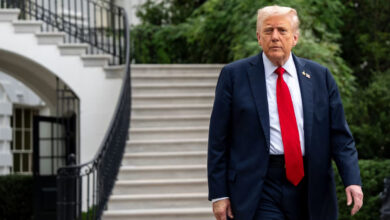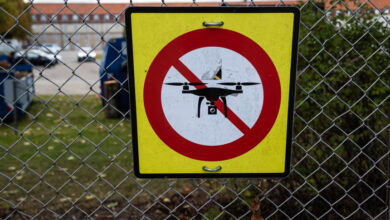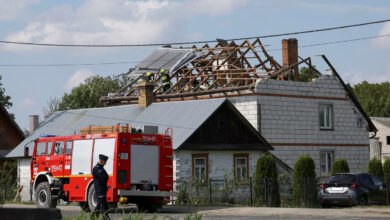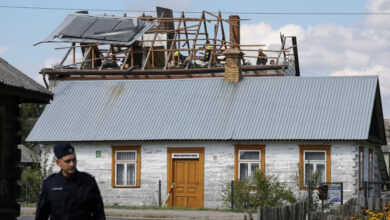Tripoli — A high-ranking African Union delegation was due in Libya on Sunday to present a blueprint for an end to the current crisis as plans for a new constitution were unveiled by parliament.
And on the ground, NATO destroyed key ammunition stockpiles and armoured vehicles in air strikes across the country.
African Union mediators on Sunday renewed their appeal for "an immediate end to all hostilities" and proposed a transition period to adopt reforms in the insurrection-hit country.
The panel of five African leaders, headed by Mauritanian President Mohamed Ould Abdel Aziz, decided to go along with a roadmap adopted in March which calls for an end to hostilities, "diligent conveying of humanitarian aid" and "dialogue between the Libyan parties," it said in a statement.
They were due to meet Qadhafi in Tripoli and leaders of the rebellion in Benghazi later on Sunday.
A draft constitution under preparation for four years will be submitted to the Libyan people at the end of the crisis, the head of parliament said.
Mohamed Zwei, head of the General People's Congress, said: "The draft was given to us recently. We have a legal committee that must examine the text before submitting it to the Basic People's Comittees."
He was referring to the state-sponsored grassroots organizations that are supposed to be the fount of constitutional authority under veteran leader Muammer Qadhafi's theory of people's power.
On 21 February, a few days after the insurrection began, Qadhafi's son Saif al-Islam had said parliament would meet shortly to decide on a new legal code giving more freedom to the press and civil society, as well as "starting a dialogue on a constitution."
The Libyan government formed a judicial committee at the end of 2008 to examine a text drawn up by the Qadhafi Foundation headed by Saif al-Islam.
NATO aircraft struck ammunition stockpiles east of Tripoli that were being used to resupply Qadhafi's forces which it said had been involved in shelling innocent civilians in the besieged third city of Misrata, the rebels' last major bastion in the west.
And late Saturday, Qadhafi's government said it shot down two rebel helicopters violating the UN-imposed no-fly zone.
NATO said it continued to target forces who fired on civilians despite the loyalists' tactic of shielding themselves or their weapons behind bystanders.
"In addition to hitting their supplies, our aircraft successfully destroyed a significant percentage of the Libyan government's armoured forces," General Charles Bouchard said in the statement.
"Some of these armoured forces also were involved in the indiscriminate shelling of Misrata," he added.
The mission to protect civilians was being made difficult by the use of women and children as human shields by government troops striking at rebel fighters in the heart of communities, NATO said.
"We have observed horrific examples of regime forces deliberately placing their weapons systems close to civilians, their homes and even their places of worship," said Bouchard.
"Troops have also been observed hiding behind women and children. This type of behavior violates the principles of international law and will not be tolerated," he added.
Qadhafi's deputy foreign minister, Khaled Kaaim, said late Saturday in Tripoli that two rebel helicopters violating the no-fly zone were shot down in the Brega region.
Kaaim hit out at the NATO forces in charge of applying Security Council Resolution 1973 imposing the air exclusion zone over Libya, saying: "NATO on Saturday permitted the rebels to violate this resolution and use combat helicopters."
NATO said its warplanes intercepted a MiG-23 fighter jet flown near Benghazi by a rebel pilot earlier Saturday and forced him to land after he violated the no-fly zone.
North Korea has ordered its citizens in Libya not to return home in an apparent bid to block news of civil uprisings in the Arab World from reaching the isolated communist state.
Pyongyang, in a message sent to its embassy in Tripoli, told some 200 North Korean workers not to return and to follow local authorities' advice, South Korea's Yonhap news agency said, citing a source familiar with North Korean affairs.
"(The North) did so because it was afraid the news of Libya's civil unrest would spread within North Korea," said the source quoted by Yonhap.
The impoverished communist state sent hundreds of workers including doctors, nurses and construction laborers to oil-rich nations including Libya, Saudi Arabia and Kuwait to earn much-needed foreign cash, Yonhap said.




